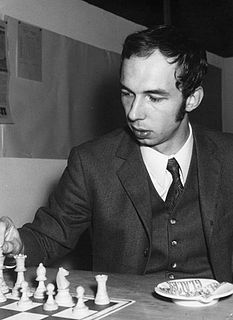A Quote by John Ciardi
You don't have to suffer to be a poet; adolescence is enough suffering for anyone.
Related Quotes
To love is to suffer. To avoid suffering one must not love. But then one suffers from not loving. Therefore, to love is to suffer; not to love is to suffer; to suffer is to suffer. To be happy is to love. To be happy, then, is to suffer, but suffering makes one unhappy. Therefore, to be happy one must love or love to suffer or suffer from too much happiness.
Suffering, if you're a Christian, suffering is a part of life. And it's not a bad thing, it is an essential thing in life... There are all different ways to suffer. One way to suffer is through lack of food and shelter and there's another way to suffer which is lack of dignity and hope and there's all sorts of ways that people suffer and it's not just tangible, it's also intangible and we have to consider both.
The best test to know whether an entity is real or fictional is the test of suffering. A nation cannot suffer, feel pain or fear, or has no consciousness. Even if it loses a war, the soldier suffers, the civilians suffer, but the nation cannot suffer. Similarly, a corporation cannot suffer, when it loses its value, it doesn't suffer. All these things, they're fictions. If people bear in mind this distinction, it could improve the way we treat one another and the other animals. It's not a good idea to cause suffering to real entities in the service of fictional stories.
The essence of love and compassion is understanding, the ability to recognize the physical, material, and psychological suffering of others, to put ourselves "inside the skin" of the other. We "go inside" their body, feelings, and mental formations, and witness for ourselves their suffering. Shallow observation as an outsider is not enough to see their suffering. We must become one with the subject of our observation. When we are in contact with another's suffering, a feeling of compassion is born in us. Compassion means, literally, "to suffer with."
It brings spiritual warfare and suffering for the priest as he identifies with those who suffer, and shares the frustrations, anger, and incomprehensibility of that suffering in what it does to those who suffer. The priest shares in these struggles of his suffering people, the uncertainties it brings, the sense of divine abandonment it induces, and the loneliness caused.
When a man finds that it is his destiny to suffer, he will have to accept his suffering as his task. . . . He will have to acknowledge the fact that even in suffering he is unique and alone in the universe. No one can relieve him of his suffering or suffer in his place. His unique opportunity lies in the way in which he bears his burden.





































